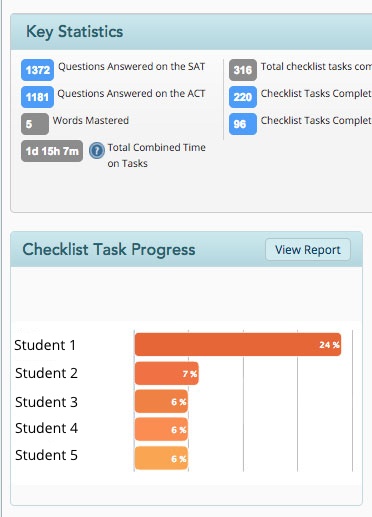Test Scores, Essays, and Deadlines: Mastering the College Admissions Checklist
.png)
There is a lot to juggle when it comes to college admissions from standardized tests, essays, recommendations, applications, and deadlines that seem to come out of nowhere. It is no surprise that students and parents alike can start to feel overwhelmed. But take a deep breath you are not alone, and you’ve got this.
This blog is your all-in-one roadmap to navigating one of the most exciting (and occasionally nerve-wracking) chapters of your academic journey. Whether you are just starting to think about college or you are already deep into the process, we will walk you through everything you need to stay on track—from planning ahead for SAT/ACT test dates to crafting essays that truly stand out, and managing every deadline with confidence.
With the right tools, timeline, and mindset, this process becomes a lot more manageable and even a little fun. Let’s dive in and help you move forward with clarity, purpose, and a plan that works for you.
.png?width=1200&length=1200&name=Start%20Early%20and%20Create%20a%20Strategic%20Timeline%20(1).png)
Mastering Standardized Testing
While many colleges have gone test-optional, standardized tests like the SAT and ACT can still play a role in your admissions strategy, particularly for merit aid or competitive programs.
What You Need to Know:
- Decide Early: Determine if you plan to submit scores. If yes, start prepping no later than the spring of junior year.
- Understand the Format: Know the difference between the SAT and ACT. Choose the one that best suits your strengths.
- Create a Testing Schedule: Plan for 1-2 official test dates and allow time for potential retakes.
- Prep Smart: Use tools like Method Learning, official practice tests, or private tutoring to boost your confidence and scores.
Pro Tip: Register early to secure your preferred test location and avoid late fees.
Writing Your Main College Essay
Your personal statement is your opportunity to showcase who you are beyond numbers and accolades. It should tell a story that reveals your personality, growth, and values.
What Makes a Great Essay:
- Authenticity: Be real. Admissions officers want to hear your voice.
- Specificity: Use vivid examples and sensory details. Avoid generalities.
- Reflection: Don’t just describe an experience—explain why it mattered.
- Structure: A clear beginning, middle, and end keeps the reader engaged.
Common Prompts Include:
- A meaningful challenge
- A time you changed your mind
- A moment that shaped your identity
Pro Tip: Start brainstorming early and aim to have a solid draft by the end of summer before senior year.
Tackling Supplemental Essays
In addition to the main essay, many schools require shorter, school-specific essays. These can include "Why This College?", "What Will You Contribute?", or specific academic prompts.
Tips for Success:
- Do Your Research: Mention specific professors, programs, or campus traditions.
- Connect the Dots: Link your interests and goals to what the school uniquely offers.
- Answer the Question: Stay focused and avoid repurposing generic answers.
Pro Tip: Create a master document to keep track of all prompts and avoid duplicating content.
Staying on Top of Deadlines
With different deadlines for Early Action, Early Decision, and Regular Decision, it’s easy to lose track. Missing even one deadline can mean missing an opportunity.
Types of Deadlines to Track:
- Application Deadlines (EA, ED, RD)
- Scholarship Deadlines (sometimes earlier than application deadlines!)
- Testing Dates
- Recommendation Letter Request
- Financial Aid Forms (FAFSA, CSS Profile
Organizational Tips:
- Use a calendar app or spreadsheet
- Color-code deadlines by category
- Set reminders 1-2 weeks in advance
Pro Tip: Double-check each college’s website. Some schools have unique or program-specific deadlines.
Coordinating Letters of Recommendation
Recommendations are a key part of your application, especially to competitive schools. They offer a third-party perspective on your academic and personal strengths.
How to Make It Easy for Your Recommenders:
- Ask Early: Ideally by the end of junior year
- Choose Wisely: Select teachers who know you well, preferably in core academic subjects
- Provide a Brag Sheet: Include your activities, achievements, and what you’re proud of
- Follow Up Politely: Confirm deadlines and send a thank-you note
Pro Tip: Check if schools require recommendations from specific subject areas (e.g., STEM programs).
Final Review Before Submitting
Before you click submit, do a final review of each component.
Checklist for Submission:
- Main essay and supplements proofread and finalized
- Test scores sent (if applicable)
- Transcripts requested
- Recommendations submitted
- Application fee paid or waiver used
Pro Tip: Read your essays out loud to catch errors and awkward phrasing. Ask a trusted adult to review everything with fresh eyes.
Don't Forget About Financial Aid
Applying for financial aid is just as important as applying for admission. Stay on top of these forms:
What You Need to Complete:
- FAFSA: Opens October 1; required for federal aid
- CSS Profile: Required by many private schools for institutional aid
- Institutional Forms: Some colleges have their own documents
Pro Tip: Apply early. Some aid is awarded on a first-come, first-served basis.
Test scores, essays, deadlines, and everything in between college admissions can feel like a lot. But here’s the good news: with the right strategy and support, you can manage it all and even thrive in the process. It all starts with a plan. When you begin early, stay organized, and break the journey down into manageable steps, the overwhelm starts to fade and confidence starts to grow.
Remember that this is more than just a task manager it is your launchpad for building a college application that reflects your hard work, goals, and unique strengths. And, you don’t have to do it all on your own. There are people, tools, and resources designed to help you succeed.


